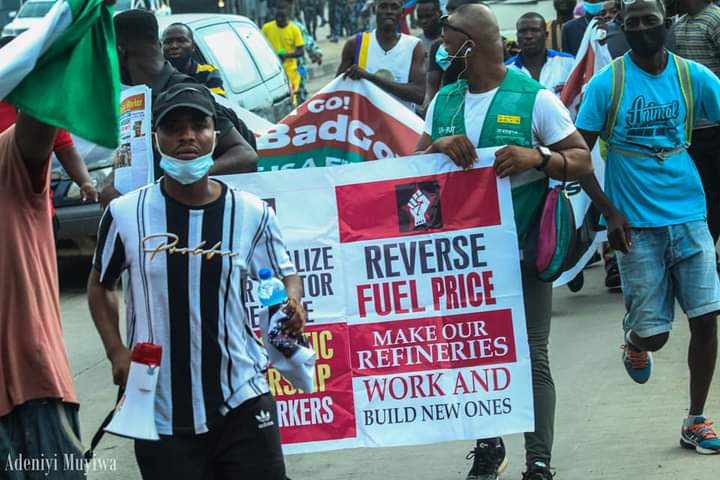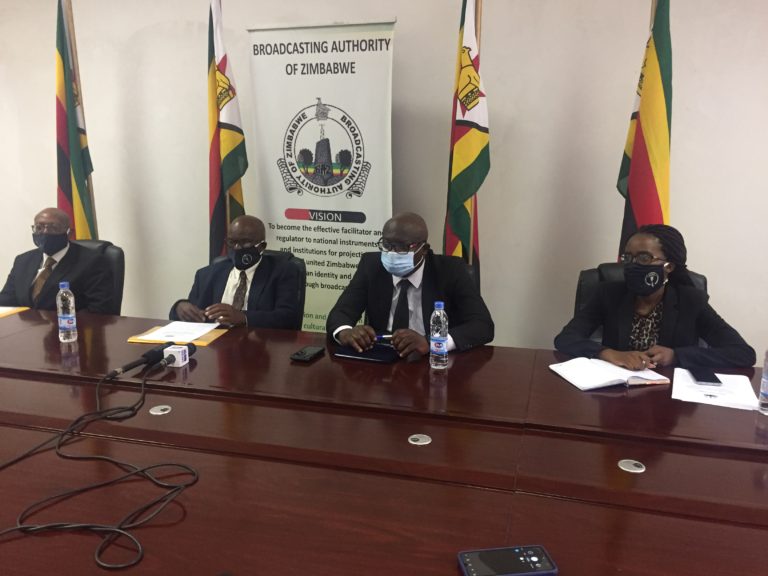Several weeks back, Muhammadu Buhari in an Arise TV interview on the 11th of June, 2021, twenty-four hours before the commemoration of Democracy day, described an entire region in the country as “dot in a circle’’. This was days after he threatened to deal with the members of IPOB “in the language they understand’’. Instinctively and quite commendably, the Nigerian tweeps mobilized to report such wicked, unconscionable and thoughtless tweet that threatens genocide against a section of a country and a deliberate attempt to torment our memories with the ugly and horrific development of the Nigerian civil war; an event that has left unforgettable memories of sorrow, tears, and blood.
This is a government that rarely speaks to terrorists and bandits in the language they understand. On the contrary, it has continued to romance and reward them handsomely in ransoms, overseas scholarships, and social empowerment. But a government that begged bandits and terrorists with CBN loans a month before is shamelessly threatening genocide against a group of people agitating for self-determination and disdainfully described an entire region as “dot in a circle’’; a fascist statement that captures an intention and justification for genocide.
As is the character of Dictators, the regime reacted by suspending the use of Twitter in Nigeria. In order to massage its ego and desperate urge for impunity, the regime was willing to murder and completely bury the rights of its two hundred million citizens to social media rights, the same way it had consistently attacked all rights.
When it couldn’t achieve this with Twitter ban thanks to a generation that is not only defiant but also far above the regime’s backwardness, the government began seeking ways to negotiate with Twitter by using as a bargaining chip, millions of Nigerians who now have to rely on VPN to tweet. In the end, it was the Nigerian people that ended up suspending the regime from Twitter.
Although the “dot in the circle” statement as used by Buhari may have rightfully suggested a threat against agitation for self-determination, it also connotes a much deeper phenomenon upon paying close attention to the President’s interview, the disposition of the regime to other forms of rights and its general approach to governance.
What we see is a regime that has subjected free speech to persistent attacks, handled protests with utmost disdain and government critics have been treated far worse than terrorists. Everyone, groups, and ordinary Nigerians who oppose the regime’s anti-people policies have become victims of violent repression, incarceration and in some instances, extrajudicially murdered as in the case of endSARS and countless Shiite protesters whom the regime continues to kill like games.
The President in the Arise TV interview could not disguise his grudge and immense hatred for Nigerians, especially young people. You could see a President that was embittered when he said, “endSARS” protesters wanted to remove him. He made this statement as if to justify the Lekki massacre and the violent crackdown on the endSARS protest. Hence, the “dot in the circle” statement falls into a general pattern of a regime that has always handled dissent with state violence and is overtly hostile to democratic rights.
If anyone is still in doubt of the tribe Buhari’s ideology refers to as “dot in a circle”, then we need also to pay attention to how the government shot at protesters on democracy day, twenty-four hours after the Arise TV interview. The government on democracy day officially described Nigerians as terrorists by unleashing the counter-terrorism unit against protesters, who in turn, fired repeatedly at our Ojota protest ground.
Under Buhari’s regime, the “dot” people are the most endangered tribe in the entire country. They are the tribe whose social-economic, constitutional, and political rights are subjected to relentless attacks.
These are the tribes that were murdered in cold blood on October 20, 2020. This tribe is consistently murdered through overwhelming poverty, insecurity, lack of access to healthcare, housing, clean water, and basic welfare. This tribe does not only constitute a category of people demanding rights to self-determination, nor does it consist only of those being persecuted, arrested, shot at, brutalized, killed for fighting for socio-economic and political rights, the “dot” nation comprises also of all who are victims of government failings. This is the tribe of the 99% that has been subjected to years of neoliberal siege by a system of greed and power.
The Buhari administration has no doubt shown that it is hostile to all forms of rights. This is why it is important for the “dot” nation, organized across the length and breadth of the country, to unite in a struggle to put a permanent end to this regime of death and destruction.



















